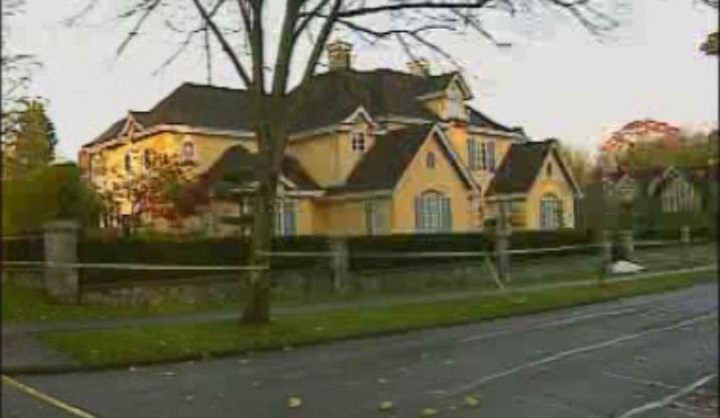A B.C. woman who sought to back out of a real estate deal for a pricey Shaughnessy mansion because of an undisclosed murder there two years prior has had her claim thrown out by B.C.’s top court.

The B.C. Court of Appeal tossed a lower court ruling Tuesday which had found Mei Zhen Wang had “fraudulently misrepresented” the state of the mansion when she and her realtors didn’t mention the murder as a reason for selling the $6.1-million property.
The three-judge panel found that Wang wasn’t obligated to provide that information, as there was no way to know that the killing two years previously would be material to the buyer, Feng Yun Shao.
Raymond Huang, Wang’s son-in-law, was gunned down on the sidewalk outside the home on Nov. 3, 2007. Police described the murder, which was never solved, as targeted.
In the wake of the shooting, Wang’s granddaughter was forced to leave her west side private school when the institution cited safety concerns, according to the ruling.
WATCH: Metro Vancouver housing sales fall to 33-year low

She eventually transferred to a school in West Vancouver, and her mother bought a new home on the North Shore to be closer to the school. Wang moved back to China, and decided to sell the Shaughnessy property, according to court documents.
She listed the mansion for sale in June 2009, and Shao viewed it in August of that year.
When Shao asked why the property was being sold, Wang, through her realtors, said the reason was because the granddaughter had moved schools, the ruling states.
Shao later learned from a friend about the murder, and after an internet search learned that an “alleged gangster had been shot fatally near the front entrance,” according to the judgment.
She then notified Wang that she was backing out of the deal. Wang sold the property in December for $5.5 million, and the following February sued Shao alleging a breach of contract, the ruling states.
WATCH: Shaughnessy heritage mansion fire leads to court battle

Court documents state that at trial in B.C. Supreme Court, Wang acknowledged under cross-examination that her family was “a little scared, and they wanted to purchase a smaller house” and that she was “worried for them.”
The lower-court judge eventually ruled in Shao’s favour, stating that “having put the question to the plaintiff through her agent, Ms. Shao was entitled to an accurate answer, rather than one calculated to conceal Mr. Huang’s death as a reason for the plaintiff’s decision to sell the property.”
But the higher court disagreed.
In their ruling, justices Mary Newbury, Daphne Smith and Peter Willcock found that Wang’s failure to disclose the murder at the home did not constitute misrepresentation by omission, noting that Wang’s daughter had indeed moved out because the granddaughter was forced from her school.
“There was no evidence she knew or should have expected that Ms. Shao would have a particular sensitivity to an event that had occurred two years earlier and that did not affect the quality of the house or its usefulness,” the court found, ruling that the onus of asking specific questions about the property is on the buyer.
“If buyers were required to disclose every possible feature relating not only to the physical and extrinsic qualities of their properties but also to all possible sensitivities and superstitions buyers might have, there would be no end to the resulting litigation.”
The court set aside damages Wang had been ordered to pay Shao, but referred damages to be paid to Wang back to the trial court.
- Joffre Lakes to close for 3 periods this year under agreement with First Nations
- ‘Why aren’t we doing more?’ White Rock on edge with killer on the loose
- B.C. carjacking victim says she doesn’t trust the ‘catch-and-release’ system
- Inquest into fatal Surrey hostage-taking recommends cameras for ERT teams




Comments